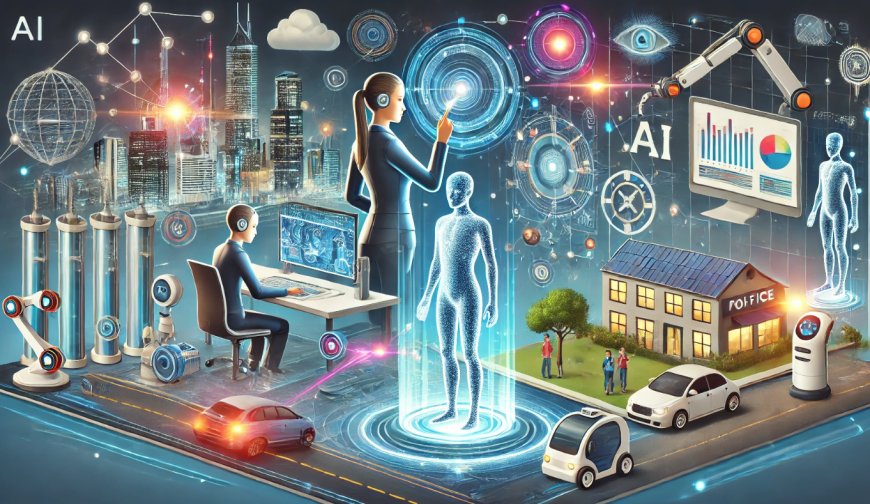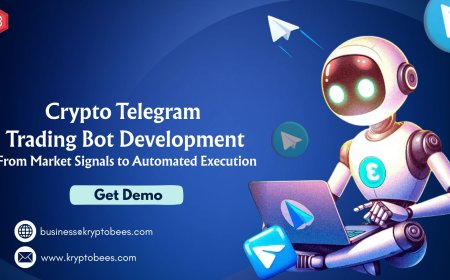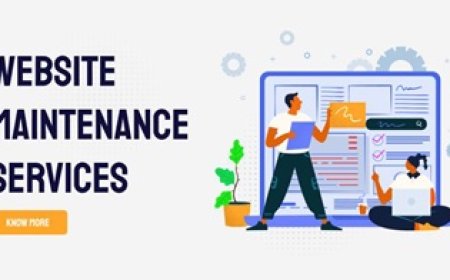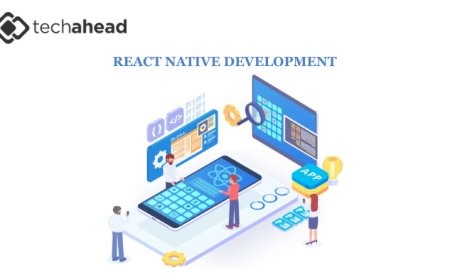Where Is AI Agent Development Heading in the Next 5 Years?
AI Agent Development is entering a transformative era, poised to redefine how businesses, consumers, and digital systems interact.

AI agent development is no longer a futuristic conceptits here, evolving rapidly, and reshaping the way we build digital experiences. From intelligent chatbots and virtual assistants to autonomous systems in logistics, finance, and healthcare, AI agents are stepping beyond simple automation into true autonomous reasoning and decision-making. As we look ahead, the next five years promise a dramatic leap forward. But what does that mean for businesses, developers, and society as a whole?
This blog explores the major trends and technologies that will define the trajectory of AI agent development through 2030, highlighting how they will impact industries, innovation, and ethical considerations along the way.
1. From Reactive to Proactive: The Evolution of Autonomy
Over the next five years, AI agents will shift from reactive problem solvers to proactive decision-makers. Todays agents mostly respond to user queries or commands. In the near future, they will autonomously initiate tasks, monitor data in real-time, and anticipate user needs before being prompted.
Key developments:
-
Proactive workflows: AI agents will book meetings, reorder supplies, or initiate customer outreach without direct input.
-
Continuous learning loops: Agents will improve their performance by learning from user interactions, feedback, and outcomes autonomously.
-
Personalized behaviors: Agents will fine-tune their behavior to individual users over time, optimizing preferences and communication styles.
2. The Rise of Multi-Agent Collaboration
Currently, AI agents often work in silos. But collaboration among agents is expected to become a dominant feature, where multiple specialized agents communicate, delegate tasks, and coordinate toward complex goalssimilar to human teams.
In the next 5 years, expect to see:
-
Agent ecosystems: Decentralized networks of agents performing interconnected tasks across platforms (e.g., one agent handles customer service while another optimizes logistics).
-
Inter-agent protocols: Standardized communication methods will allow agents to seamlessly collaborate across apps and platforms.
-
Hierarchical control: Supervisory agents will manage and optimize subordinate agents, increasing operational scalability and efficiency.
3. Integration with Enterprise Systems
AI agents will become deeply embedded within enterprise operations, serving as interfaces across CRM, ERP, HR, and customer support platforms. This evolution will create autonomous enterprises where AI agents take over repetitive decision-making tasks and optimize workflows at scale.
Emerging use cases:
-
AI-driven sales teams: Agents qualifying leads, drafting outreach emails, and updating CRM pipelines.
-
Supply chain agents: Monitoring stock levels, anticipating delays, and executing rerouting autonomously.
-
Finance agents: Automating invoice generation, approval workflows, and real-time risk monitoring.
Enterprises will increasingly rely on agent-based interfaces to streamline internal processes, reduce costs, and improve decision-making speed.
4. Enhanced Contextual Intelligence and Memory
One of the current limitations of AI agents is limited context and memory, often restricted to a single conversation or task. Over the next five years, agents will gain long-term memory and better contextual understanding, enabling them to build relationships, recall past interactions, and maintain continuity across channels and time.
Key innovations:
-
Persistent memory architecture: AI agents will store structured knowledge about users, preferences, and tasks across sessions.
-
Context-aware reasoning: Agents will understand the intent behind complex queries using history, tone, and external data sources.
-
Personal assistants with recall: Imagine an agent that remembers every meeting you've had, decisions you've made, and preferences you've sharedready to assist without repeating yourself.
5. Multimodal Agents: Beyond Text and Voice
The future of AI agents lies in their ability to interact through multiple modalitiestext, voice, images, video, and even gestures. Over the next five years, agents will become more sensory-aware and versatile in how they interact with users and environments.
Developments to watch:
-
Visual agents: Capable of interpreting and generating images, analyzing documents, or even reviewing visual data like x-rays or designs.
-
Voice + vision integration: AI agents that combine spoken commands with visual referencesideal for AR/VR, automotive systems, or smart homes.
-
Embodied agents: Robots and physical assistants that blend AI agent intelligence with robotics for service, care, and operational roles.
6. Democratization and Low-Code Development
As open-source frameworks (e.g., LangChain, AutoGen, AgentVerse) and APIs from major LLM providers mature, building AI agents will become dramatically easier. Low-code/no-code platforms will empower non-developers to create and deploy AI agents tailored to their business needs.
Expected outcomes:
-
Startups and SMBs will rapidly adopt AI agents without needing full AI/ML teams.
-
Custom agents for every department: Marketing, HR, sales, and operations teams will create task-specific agents with simple interfaces.
-
Citizen developers: Professionals with minimal coding experience will be able to design workflows using drag-and-drop logic, prompting, and integrations.
7. Stronger Guardrails, Ethics, and Regulation
As AI agents grow more autonomous, the need for transparency, safety, and accountability becomes critical. Governments, industry coalitions, and AI developers are already working on frameworks to regulate and govern AI behavior.
Future developments will include:
-
Built-in explainability: Agents will be required to justify decisions and actions taken.
-
Fail-safes and human oversight: AI agents will operate under well-defined thresholds for escalation to human control.
-
Compliance by design: Privacy, security, and fairness considerations will be baked into the agent development lifecycle.
Trust will be a competitive differentiator for companies deploying autonomous agents.
8. Emergence of Super Agents and Generalization
Todays agents are narrowthey solve specific problems. But future agents will become increasingly generalized, capable of handling broader task categories and adapting on the fly. The concept of a super agent is emerging: a unified agent capable of coordinating multiple roles, adapting to unfamiliar domains, and executing across environments.
Anticipated features:
-
Meta-reasoning: Agents that evaluate their own decisions and adjust strategies based on feedback.
-
Autonomous self-improvement: Ability to revise code, retrain on new data, and optimize workflows independently.
-
Cross-domain adaptability: A customer support agent today could become a sales assistant tomorrow without starting from scratch.
While AGI (Artificial General Intelligence) remains a long-term goal, these super agents represent an important stepping-stone.
9. Business and Job Transformation
AI agents will not just automate jobsthey will transform them. Routine tasks will disappear, but new roles in agent design, orchestration, and oversight will emerge.
Shifts to expect:
-
AI as co-worker: Professionals will work alongside AI agents that handle time-consuming research, writing, analysis, and execution.
-
Agent operations teams: Just as we have DevOps today, AgentOps teams will manage, monitor, and optimize fleets of agents.
-
Upskilling imperative: Employees will be trained to work with and supervise AI systemsnot replace them.
Companies that adopt a human-in-the-loop mindset will find the most sustainable path forward.
Conclusion
AI agent development is moving toward a future where intelligent, autonomous systems become an integral part of how we work, live, and innovate. Over the next five years, agents will become smarter, more collaborative, more proactive, and deeply embedded in both digital and physical systems. Whether it's automating business workflows, enhancing user experiences, or enabling new types of services, AI agents are no longer optionalthey are essential.
For startups, enterprises, and developers, now is the time to invest in understanding and adopting this paradigm. The foundations you lay today could define your competitive edge tomorrow in an increasingly autonomous world.































